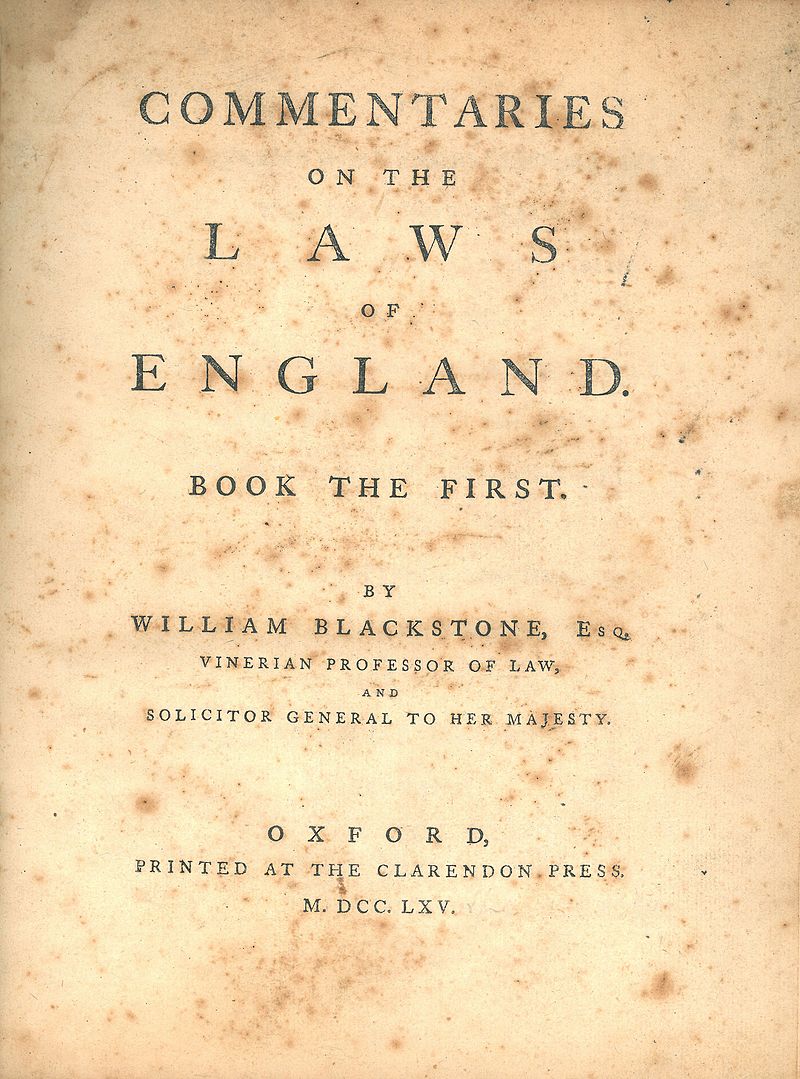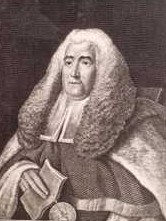Commentaries on the Laws of England


The Commentaries on the Laws of England are an influential 18th-century treatise on the common law of England by Sir William Blackstone, originally published by the Clarendon Press at Oxford, 1765–1770. The work is divided into four volumes, on the rights of persons, the rights of things, of private wrongs and of public wrongs.
The Commentaries were long regarded as the leading work on the development of English law and played a role in the development of the American legal system. They were in fact the first methodical treatise on the common law suitable for a lay readership since at least the Middle Ages. The common law of England has relied on precedent more than statute and codifications and has been far less amenable than the civil law, developed from the Roman law, to the needs of a treatise. The Commentaries were influential largely because they were in fact readable, and because they met a need.
The Commentaries are often quoted as the definitive pre-Revolutionary source of common law by United States courts.[citation needed] Opinions of the Supreme Court of the United States quote from Blackstone's work whenever they wish to engage in historical discussion that goes back that far, or farther (for example, when discussing the intent of the Framers of the Constitution). The book was famously used as the key in Benedict Arnold's book cipher, which he used to communicate secretly with his conspirator John André during their plot to betray the Continental Army during the American Revolution.

Contents
The Rights of Persons
The Rights of Persons is the first volume in the four part series that is the Commentaries. Divided into 18 chapters, it is largely concerned with the rights of individuals; the rights of Parliament; the rights and title of the King; the royal family; the councils belonging to the King; kingly duties; the royal prerogative; the King's revenue; subordinate magistrates; the people (aliens, denizens, and natives); the rights of the clergy; the civil state; the military and maritime states; the relationship between master and servant (in modern-day terminology, employer and employee), husband and wife, parent and child, guardian and ward; and finally corporates.
The Rights of Things
The Rights of Things, Blackstone's longest volume, deals with property. The vast majority of the text is devoted to real property, this being the most valuable sort in the feudal law upon which the English law of land was founded. Property in chattels was already beginning to overshadow property in land, but its law lacked the complex feudal background of the common law of land, and was not dealt with nearly as extensively by Blackstone.
Of Private Wrongs
Of Private Wrongs dealt with torts as they existed in Blackstone's time. The various methods of trial that existed at civil law were also dealt with in this volume, as were the jurisdictions of the several courts, from the lowest to the highest. Almost as an afterthought, Blackstone also adds a brief chapter on equity, the parallel legal system that existed in English law at the time, seeking to address wrongs that the common law did not handle.
Of Public Wrongs
Of Public Wrongs is Blackstone's treatise on criminal law. Here, Blackstone the apologist takes centre stage; he seeks to explain how the criminal laws of England were just and merciful, despite becoming later known as the Bloody Code for their severity. He does however accept that "It is a melancholy truth, that among the variety of actions which men are daily liable to commit, no less than an hundred and sixty have been declared by Act of Parliament to be felonious without benefit of clergy; or, in other words, to be worthy of instant death". Blackstone frequently resorted to assuring his reader that the laws as written were not always enforced, and that the King's power of pardon could be exercised to correct any hardships or injustices.












0 comments
Sign in or create a free account